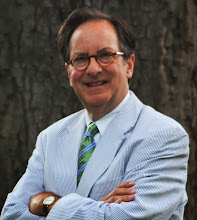With The King's Speech leading this year's Academy Award nominations, critics were quick to point to the film's inaccuracies. TIME takes a look at films that, while they may entertain, also fall short of the truth.
Monday, January 31, 2011
Top 10 Historically Misleading Films
Thursday, January 27, 2011
PBS: DIGITAL MEDIA: NEW LEARNERS OF THE 21ST CENTURY
Premieres: Sunday, February 13, 2011, 10:30-11:30 p.m. ET(check PBS station for exact day and time in your area)
Targeted at parents, teachers and anyone concerned with education in America, this one-hour documentary takes viewers to the front lines of an education revolution. DIGITAL MEDIA: NEW LEARNERS OF THE 21ST CENTURY examines how mobile devices and digital media practices can empower young people to direct their own learning. Documenting five success stories both inside and out of the classroom, the program demonstrates how digital media, games, smart phones and the Internet are fundamentally transforming the way young people communicate, collaborate, participate and learn in the 21st century. Featuring leading experts, thinkers and practitioners in the field, DIGITAL MEDIA is a startling preview of a 21st century education.
Targeted at parents, teachers and anyone concerned with education in America, this one-hour documentary takes viewers to the front lines of an education revolution. DIGITAL MEDIA: NEW LEARNERS OF THE 21ST CENTURY examines how mobile devices and digital media practices can empower young people to direct their own learning. Documenting five success stories both inside and out of the classroom, the program demonstrates how digital media, games, smart phones and the Internet are fundamentally transforming the way young people communicate, collaborate, participate and learn in the 21st century. Featuring leading experts, thinkers and practitioners in the field, DIGITAL MEDIA is a startling preview of a 21st century education.
Viewing/Visual Literacy Represented in DRAFT of New Early/Middle Grade NBPTS
A draft of the newly revised early childhood and middle grades ELA standards of the National Board of Professional Teaching Standards includes a large section devoted to viewing and visual literacy. (The specific section on viewing and visual literacy can be found on pages 47-52.) The document is now open for public review and comment.
Tuesday, January 25, 2011
Teaching Digital & Media Literacy Requires Teaching Skepticism
The newly restarted online Carnival of Journalism asked bloggers to respond to recent recommendations from the Knight Commission to promote journalism education in higher education and to “integrate digital and media literacy as critical elements for education at all levels through collaboration among federal, state, and local education officials.” Specifically, discuss: “how do we actually make it happen?”
Craig Silverman, managing editor of PBS MediaShift and Idea Lab, took up the challenge and put his response in colorful terms: “Universities — indeed all educational institutions — should build bullshit detection into the basic curriculums.” Read more here.
Friday, January 14, 2011
Action Coalition For Media Education (ACME) National Conference
Action Coalition For Media Education (ACME) National Conference,
Boston Park Plaza Hotel, April 7, 2011
Media Education for Health, Democracy and Reform.
To register for ACME, go to: http://www.acmecoalition.org/acme_summit_2011_registration
Questions about the ACME Annual Conference should be directed to Bob McCannon at mccannon@flash.net
Boston Park Plaza Hotel, April 7, 2011
Media Education for Health, Democracy and Reform.
To register for ACME, go to: http://www.acmecoalition.org/acme_summit_2011_registration
Questions about the ACME Annual Conference should be directed to Bob McCannon at mccannon@flash.net
Wednesday, January 12, 2011
Improving Literacy With Technology
The writer offers educators a number of useful ideas, including website resources for considering using in literacy instruction.
Subscribe to:
Comments (Atom)
